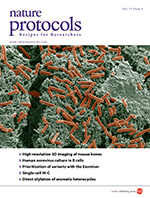 Retraction Watch readers are of course familiar with the STAP stem cell saga, which was punctuated by tragedy last month when one of the authors of the two now-retracted papers in Nature committed suicide.
Retraction Watch readers are of course familiar with the STAP stem cell saga, which was punctuated by tragedy last month when one of the authors of the two now-retracted papers in Nature committed suicide.
In June, Science‘s news section reported:
Sources in the scientific community confirm that early versions of the STAP work were rejected by Science, Cell, and Nature.
Parts of those reviews reviews have surfaced, notably in a RIKEN report. Science‘s news section reported:
For the Cell submission, there were concerns about methodology and the lack of supporting evidence for the extraordinary claims, says [stem cell scientist Hans] Schöler, who reviewed the paper and, as is standard practice at Cell, saw the comments of other reviewers for the journal. At Science, according to the 8 May RIKEN investigative committee’s report, one reviewer spotted the problem with lanes being improperly spliced into gel images. “This figure has been reconstructed,” the RIKEN report quotes from the feedback provided by a Science reviewer. The committee writes that the “lane 3” mentioned by the Science reviewer is probably the lane 3 shown in Figure 1i in the Nature article. The investigative committee report says [co-author Haruko] Obokata told the committee that she did not carefully consider the comments of the Science reviewer.
The entire reports, however, have not been made available. Retraction Watch has obtained the full text of the editor’s cover letter and reviews of the rejected Science paper. The reviews are full of significant questions and doubts about the work, as would be expected in a rejection. We present them here, to fill in some of the gaps and help readers consider how the research eventually made it through peer review: Continue reading “Truly extraordinary,” “simply not credible,” “suspiciously sharp:” A STAP stem cell peer review report revealed









